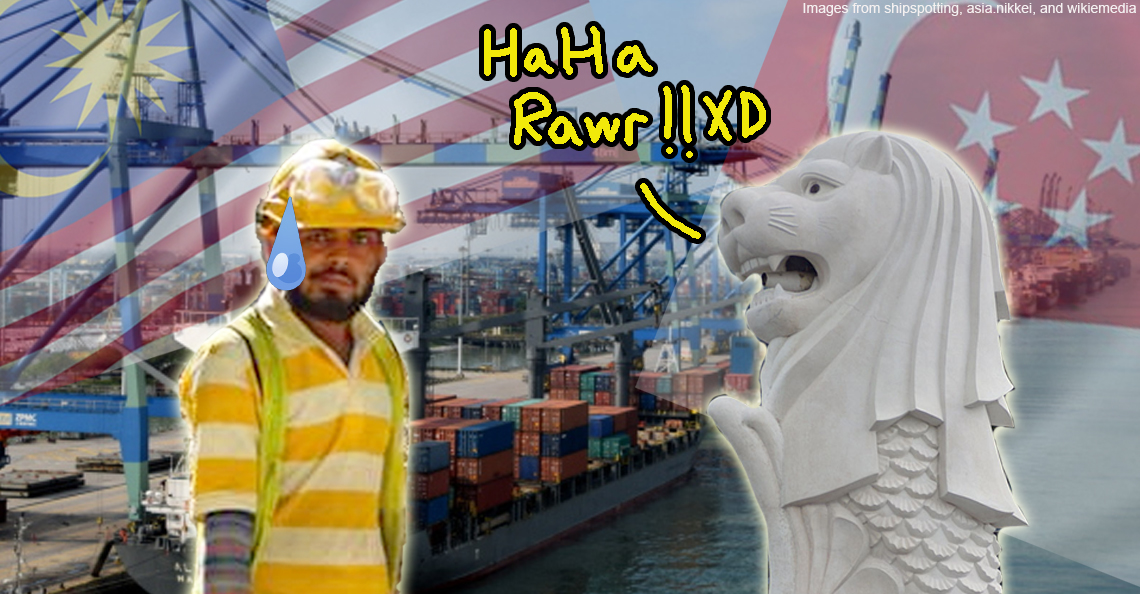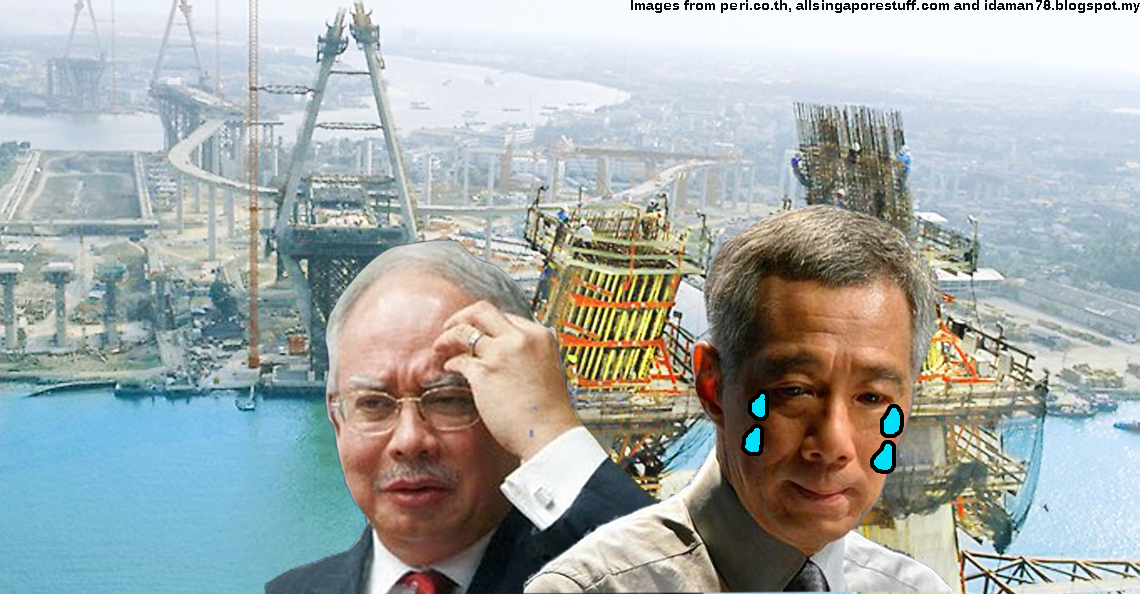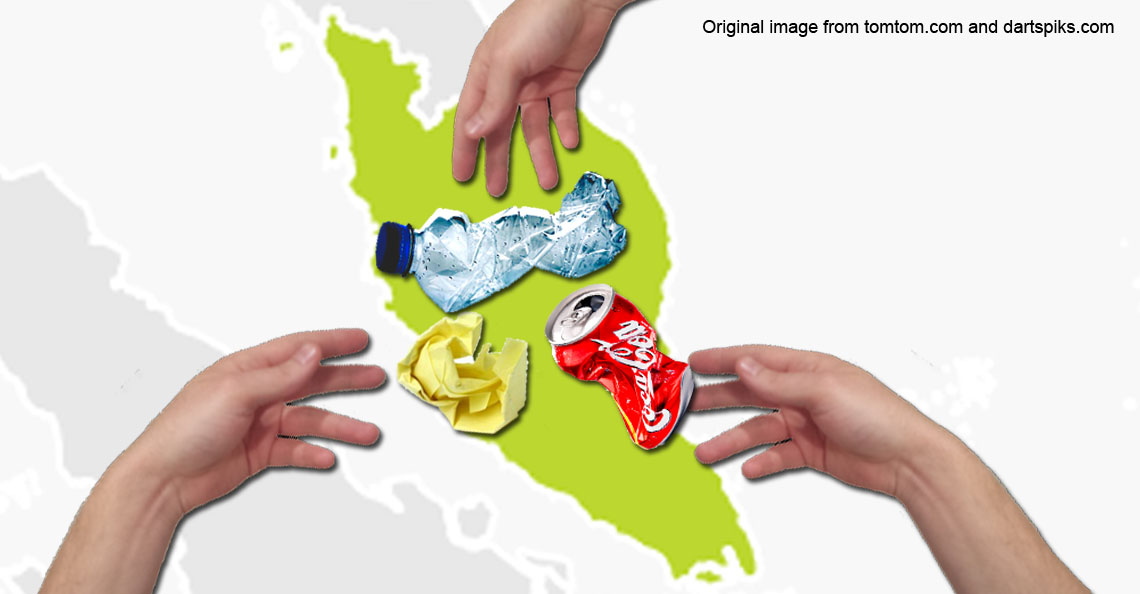Ports at Selat Melaka might be screwed by Thailand’s new ‘land bridge’. Here’s how
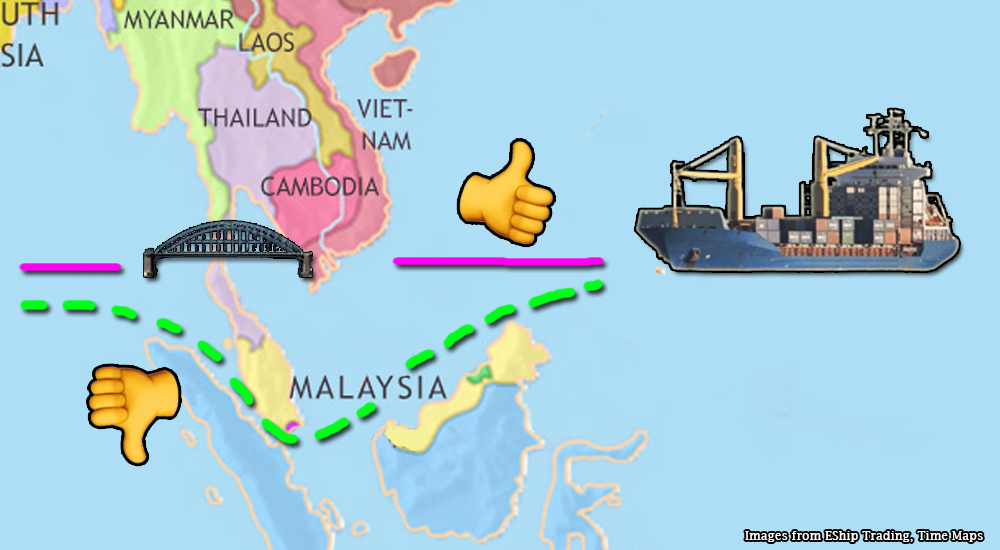
- 166Shares
- Facebook124
- Twitter7
- LinkedIn9
- Email7
- WhatsApp19
Back in the 1600s before Mahathir’s grandfather was born (presumably), Thailand had a grand idea to connect the east and west coasts of Southern Thailand… through a waterway.
Basically, they wanted to dig through the earth and create a canal– the Kra Canal, specifically, which is a sort of small river. It would allow their ships to easily transport stuff from east to west or vice versa. But for years, this idea was dismissed, largely because it was expensive, the environmental damage would be too much, and there were concerns that splitting Thailand in 2 would affect domestic politics.
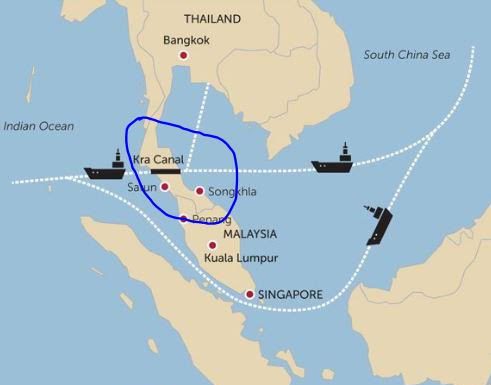
… That was until project Kra Canal went through a dramatic makeover and reappeared with a sparkling new identity– the ✨Southern Land Bridge✨
As the name suggests, instead of a canal connecting the east and west of South Thailand, the government now wants to build an actual bridge over land— which is a lot less expensive, a lot less environmentally harmful, and would not split Thailand in any way. If you think that sounds promising, well, so did the Thai Cabinet. Just last week, they approved its construction.
There’s just one problem…
The Thai Land Bridge means ships can totally bypass Selat Melaka
The way Science taught us mitochondria is the powerhouse of the cell, Sejarah and Geography pretty much drilled in the fact that Malaysia is situated in a hella strategic location, and we owe much of that to Selat Melaka— one of the busiest shipping routes in the world. Sad to say though, we may not have this title much longer.
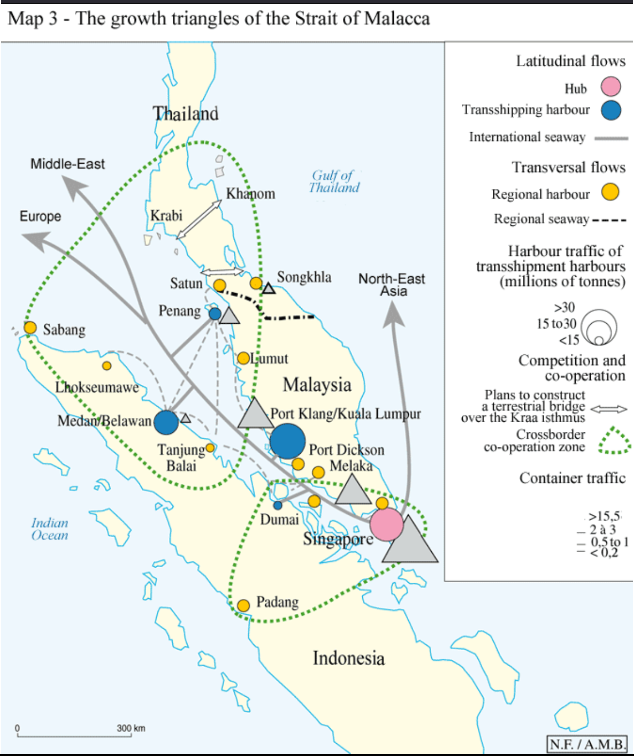
You see, the Thailand bridge is an alternative route to Selat Melaka. And not just that, it’s faster. Instead of making a loop-de-loop around the entirety of Semenanjung, ships can just cut across Thailand in a relatively straight(ish) line and be on their merry way. And the time it saves them? About 2-3 days.
As of right now, interests are already pouring in, with China turning out to be a substantial backer. This is great for Thailand, but not so much for us, since…
Malaysia’s port industry stands to lose A LOT OF MONEY
Remember when we said Selat Melaka is one of the busiest shipping routes in the world? Well, that’s because it’s actually the shortest sailing route from the Middle East to Asia, which makes it a very important route for oil transport. Last year saw roughly 90,000 ships chugging through the Straits. Despite the high traffic though, the port industry isn’t as lucrative as you might think.
In 2021, Port Klang, one of the ports along Selat Melaka, actually ran a deficit due to high operating costs, and you can expect these costs to keep rising each year.
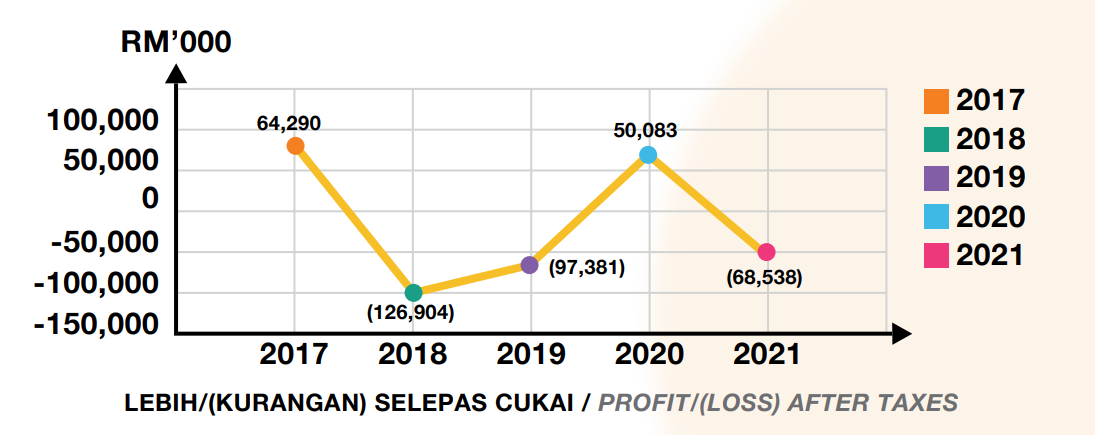
So imagine how much worse it will be once the traffic is diverted to Thailand. Ofc, we’re not saying that this new route will completely replace Selat Melaka, that’s just not possible, but it is undoubtedly shorter, and therefore cheaper to use. All in all, it sounds more favourable. So it may come as no surprise then, that experts predict Malaysia’s economic growth will dampen and thousands of jobs might be affected.
That said, when we step away from the bigger picture and start looking at the details, it seems the Thai land bridge may be more trouble than it’s worth. And that’s because…
Ships will have to dock, transport their goods over 90km of road, then sail again
So here’s how the whole bridge thing should work: There’ll be two deep sea ports on either side of South Thailand— one in Chumphon Province, and the other in Ranong, and these ports will be connected by a 90km railway and motorway.
Basically, people would have to sail their big ships to one port, transfer their goods into a vehicle that will carry everything across a superhighway, then reload their goods into another ship and continue on their journey. Now we don’t know about you guys, but that sounds like an awful lot of work for a supposed shortcut.
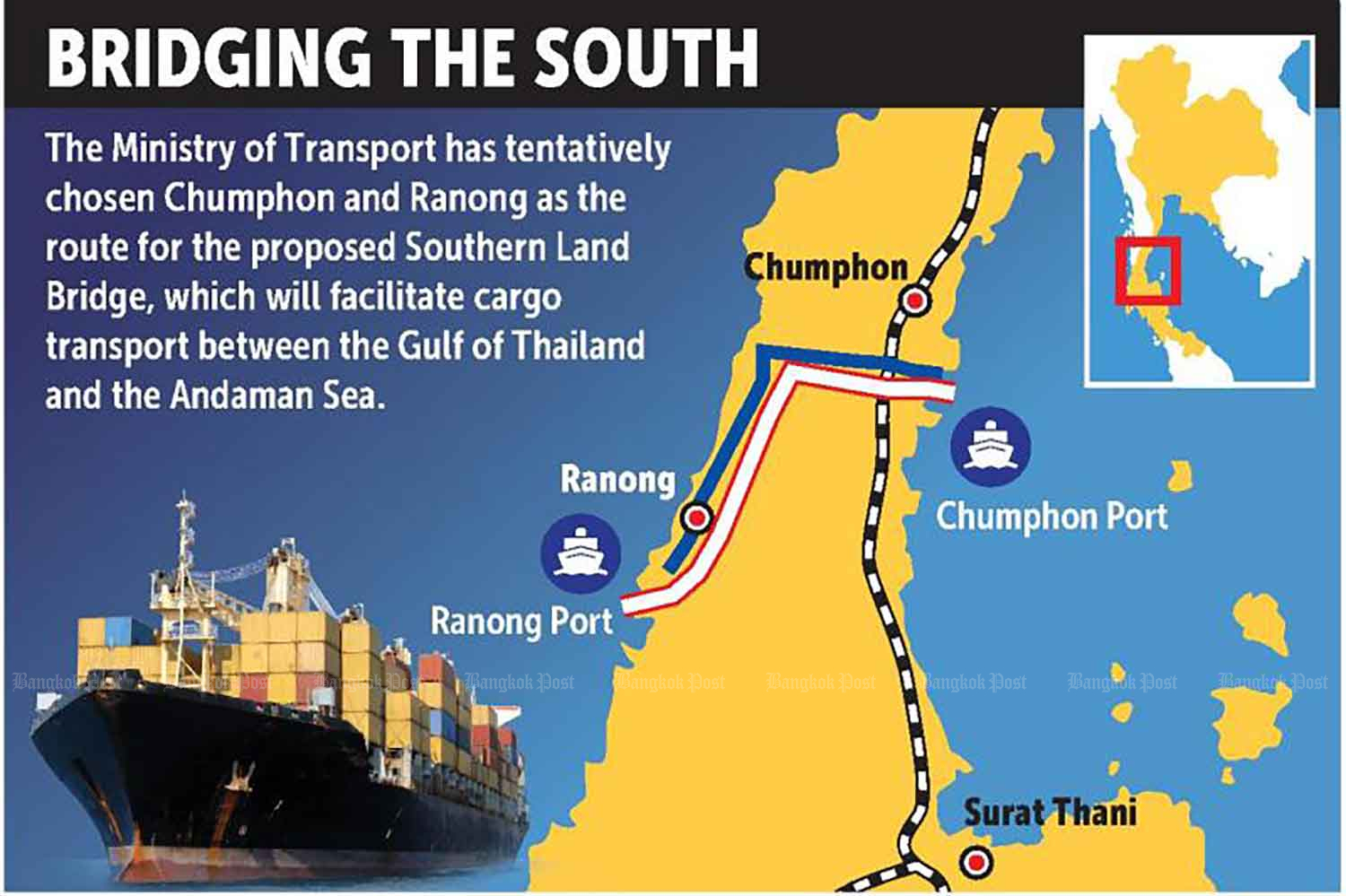
In fact, the Chairman of the Shipping Association of Malaysia, Ooi Lean Hin, pointed out that the land bridge doesn’t actually save much time when you factor in other costs, like the wait time needed for ships to queue and unload. To put what he means into perspective, the Panama Canal saves a whopping 5 months of travel time, and the Suez Canal saves 7-10 days. So the 2-3 days that the Thai land bridge saves is relatively insignificant.
“It’s just not economically viable for shipping operators to pay high canal dues when the saving is only 2 to 3 days,” — Ooi Lean Hin via BFM
But that’s not to say this whole project is all bad news. Being as busy as it is, Selat Melaka is often congested and infested with pirates. An alternate route will surely free up the traffic and subsequently reduce criminal activities, but the true impact of the Thai land bridge is something only time can tell. It’s expected to operate in 2030, so it will be a while yet.
- 166Shares
- Facebook124
- Twitter7
- LinkedIn9
- Email7
- WhatsApp19

